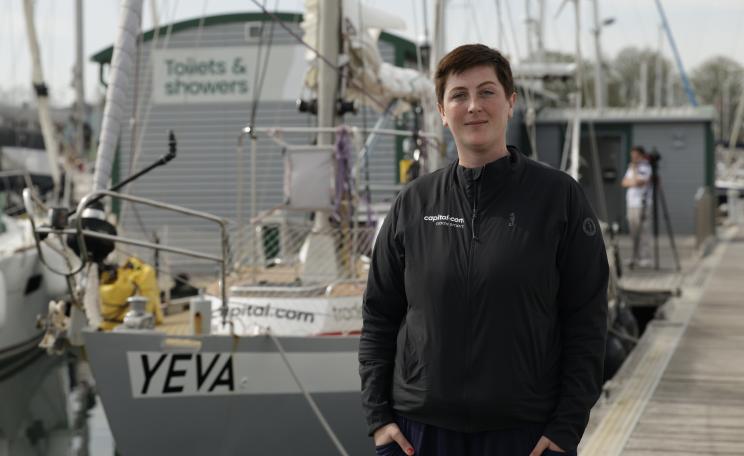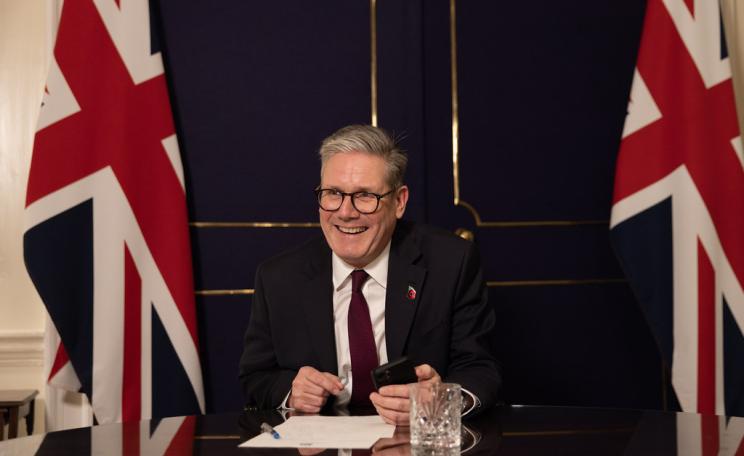You need to act boldly. We need to get this done. We have got the tools. We are just lacking the political will at this point.
Dr Jennifer Francis of the Woodwell Climate Research Institute in the US is a leading expert on the changing processes that are a resulting from the increased warming in the Arctic region.
For years, Dr Francis has produced studies that indicate strong links between human induced global heating and how the Arctic region interacts with the climate system in the Northern Hemisphere.
Her recent research published in Nature shows that as the sea-ice melting in the Arctic Ocean continues, the larger expanses of open water are driving evaporation that in turn is fuelling large increases in rain and snow across the northern hemisphere.
Collapses
Dr Francis told The Ecologist: ‘We looked at the difference between how it used to be in the winter and how it is now, typically, in the winter and calculated how much additional evaporation has occurred from the open water.
"Having so much more open water now means that evaporation has increased quite a bit because we get very little evaporation from ice… the Arctic is one of those places where the evaporation will be used for precipitation.
"So knowing that we've got that extra precipitation, the question we were looking at is, what happens to it? Where does it go? And… can we actually track that moisture that comes from the areas where the sea ice has disappeared, and find out where that precipitation is occurring more heavily now?"
One intriguing discovery from the study shows that there is a feedback that increases the amount of snowfall over Greenland.
The rapid melt of the Greenland ice sheet is a major cause of concern because it can contribute up to seven metres of sea-level rise if it collapses entirely. Can this feedback significantly reduce the rate of ice loss on Greenland?
Dangerous
Dr Francis explained: ‘We did measure an increase in precipitation from this source of moisture over the Arctic. It is small compared to what comes in from the Atlantic Ocean, but anywhere where there is more snow falling … it is going to affect how much reflected solar there will be later in the spring.
"If there's more snow then it will be slower for that snow to melt, and it will mean that it will be a brighter surface in the spring when the sun comes out, and so it will reflect more energy back to outer space longer.
"But, greenhouse gas warming is winning that battle and that is why we are seeing the snow cover in the spring disappear ever earlier because of the warming."
The research shows that there is greater precipitation falling on a broad range of northern hemisphere countries such as the UK, Canada, Scandinavia and even Siberia.
In some areas these can increase snowfall in mountainous areas which is welcome but in others they can create dangerous impacts for communities.
Thunderstorms
This has already been witnessed when increased snowfall eventually melts and causes extreme flooding in unprepared areas, or when heavy persistent rains overwhelm drainage infrastructure not used to these more extreme deluges.
Dr Francis puts the Arctic in the context of observed changes in the global climate system. She said: "Generally, we are seeing the cycle of water in the atmosphere accelerating, meaning that we see these heavier downpours happening more often.
"But we are also seeing drought increasing as well. So we have got more moisture coming from the Arctic, but there is also a lot more evaporation from the warming oceans worldwide, and that is actually a much bigger deal, because the oceans are warming so much and the Arctic is part of that story, for sure.
"But the farther south you go from the Arctic, the bigger the influence from the oceans nearby."
These impacts on communities worldwide are reflected in a recent report on the Reinsurance industry by Munich RE that states that "catastrophic flooding, extreme storms, and two earthquakes produce overall losses of roughly US$ 120bn" with "68 per cent of overall losses and 76 per cent of insured losses attributable to severe thunderstorms, flooding and forest fires’.
Boldly
Regarding the level of traction this kind of hard science is getting by policymakers, Dr Francis said: "It’s a topic that is on the front burner of our upcoming election, rather than the back burner, so I think it’s all helping to push policy in the right direction.
We are measuring many pieces of evidence that are all pointing to the impacts of these increasing greenhouse gasses in the atmosphere...
"We scientists have been talking about these sorts of impacts for decades now, so there is really no controversy about this. These very serious impacts of the warming Arctic is part of it."
Dr Francis continued: 'We just have to figure out how to stop emitting carbon gasses, especially carbon dioxide and methane, because we have to turn around this warming trend.
"That is the only way these impacts are going to lessen. If we don't, they are going to get worse and worse. So policymakers, need to act fast. You need to act boldly. We need to get this done. We have got the tools. We are just lacking the political will at this point."
Policymakers
As COP29 this November is to be hosted by petro-state Azerbaijan, the likelihood that any meaningful international commitment to drastically reduce emissions, remains very low.
One more prominent subject at the COPs these days is geoengineering - proposals to engineer a cooler planet - but these are highly controversial and perceived by many scientists as a dangerous distraction.
Dr Francis is not a proponent of geoengineering, but does agree that research needs to be done in order to further highlight the dangers of these cooling schemes.
"The research could really help raise the certainty levels of how the inadvertent parts of it might play out, and making those costs really clear, comparing it to using that money for further switching to renewable energy, which we know works very well and is increasing rapidly," she observed.
"Also in communication to the public, so that they understand why this is potentially a bad idea and why we need to switch over to renewable energy even faster … laying that out, I think, could help policymakers see why that path towards geoengineering really doesn't make any sense and it's a waste of money."
This Author
Nick Breeze is the author of ‘COPOUT - How governments have failed the people on climate’ published by Ad Lib Books, 2024, and also the host of the ClimateGenn podcast. He will be reporting for The Ecologist from COP29 in November.







